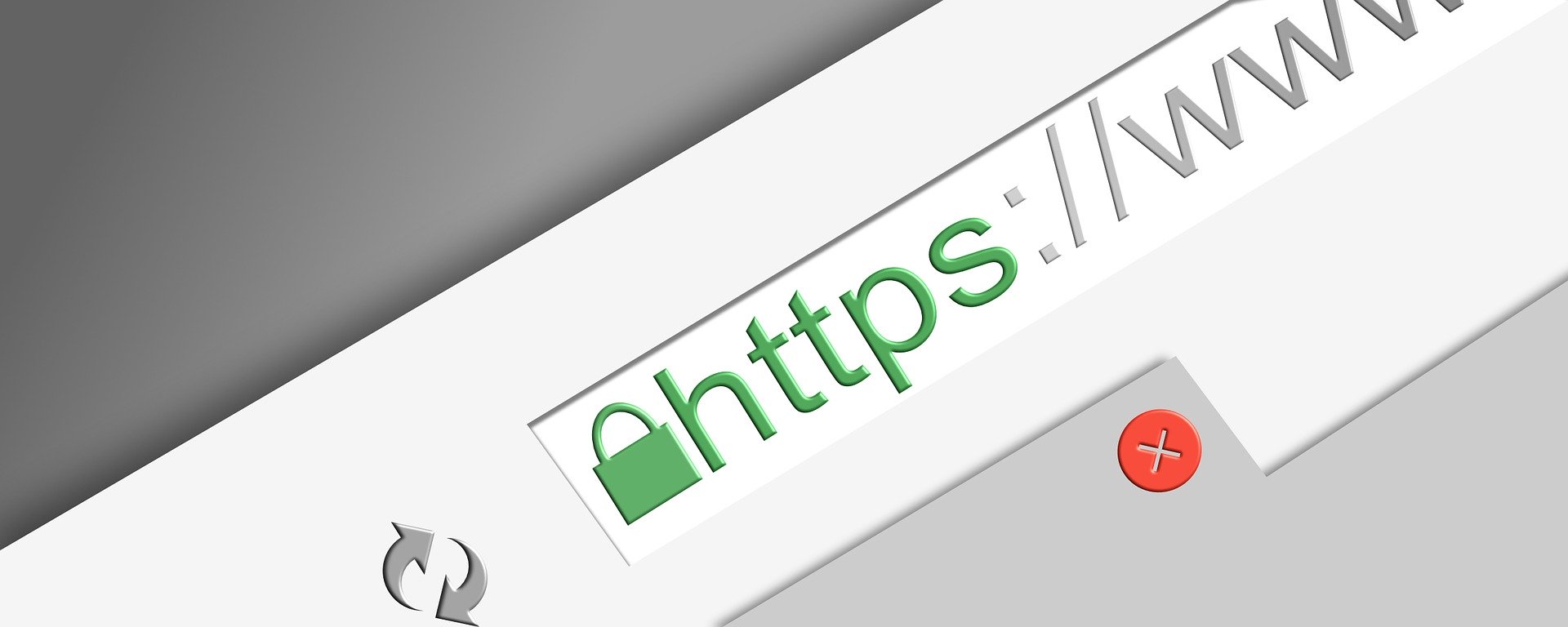The evolution of the internet is rapidly increasing and everything you need is now available online. Every day, there are over millions of transactions over the internet where sensitive personal information is transmitted. This opens up to a higher possibility of cybercrime and customer information leak. Just like a lock is a must for your home’s safety, then so does an SSL certificate for your website.
By definition, SSL stands for Secure Sockets Layer. It is an encryption protocol used for securing communication or information exchange on the internet. By encryption, it means, to render the data unreadable during the data transfer from the user to the website. For instance, it is used to secure credit card transaction, personal data transfer, user logins, and browsing on social media sites.
Actually, an updated protocol referred to as TLS (Transport Layer Security) replaced SSL sometime ago but until now, users still commonly use the term SSL for this encryption technology.
Websites, mobile apps, and emails use SSL certificates which is an essential component of the data encryption process. SSL Certificate secure internet transactions. Think of it as an envelope seal to keep the document safe.
Internet browsers such as Chrome and Mozilla mark unencrypted sites. They display “Not Secure” in the URL bar if your website does not have an SSL certificate. You can actually tell if a website has SSL certificate when:
- The URL shows “https” instead of “http”
- There is a padlock icon on the right or left-hand side of the URL bar
These are the two factors affecting the SSL Certification
- Validation level
- Number of domains
SSL Certificates – Validation Level
There is an organization called Certificate Authority or CA that does the verification of the identity of a person or company that owns a website before it can be SSL certified. Some of the commonly used CAs are Comodo, GlobalSign, and Symantec.
The CA has certain validation levels which are dependent on the website functionality and the level of validation you require for your website. The validation can be Domain Validated SSL (DV SSL), Organization Validated SSL (OV SSL), or Extended Validation SSL (EV SSL).
Domain Validated SSL (DV SSL) Certificates
DV SSL certificates are the basic validation level and the lowest level among the three types of validation. Basically, CAs simply verify that the person or company running the website have control over the website’s domain. With this validation, the web address will have the padlock symbol with the “https” in the URL, however, the SSL certificate will only display limited information about the website ownership.
What’s really great about DV SSL validation is that the SSL Certificates can be issued in just a matter of minutes since verification is mostly done automatically. However, the downside of this is that there may still be some trust issues from the users due to the limited information about the domain owner. But actually, this won’t really be an issue if the website is mainly a blog site or if you are just a startup e-commerce business. What’s important is that there is SSL certificate in your e-commerce site to secure the transactions.
Organization Validated SSL (OV SSL) Certificates
For OV SSL, CA verifies the domain owner and does some minor vetting. Just like the DV SSL certificate, OV SSL is also signified with the “https” in the address bar and it also comes with a padlock. But the main difference is that users will find more information about the domain owner when they click the padlock. The certificate displays the domain owner’s name, address, and country.
Since users really get to know the website owner’s information, this certificate is perfect for e-commerce sites to build trust with their users. This way, users will be assured that the exchange of information, especially payment information is secured. However, since the verification process is more intensive than the DV SSL, it can take several days before the OV SSL certificate can be issued.
Extended Validation SSL (EV SSL) Certificates
If OV SSL verification and issuance take several days, EV SSL could take up to several weeks. That’s because this level of certification requires the most extensive background checks on the domain’s ownership, legal existence, and other pertinent ownership information. Thus, EV SSL is the highest and most trustworthy of all certificates. Not to mention, this is also the most expensive.
So how can you tell that a website is EV SSL certified? Well, it actually features part or entirely green web address bar with the padlock symbol and the display of the organization’s name. With this type of certification, users easily spots the site’s trustworthiness and legitimacy. But of course, this comes with a very high ticket that mostly only large enterprises, financial institutions, and e-commerce stores invest on.
SSL Certificates – Functionality
In addition to the SSL certification types based on validation, there is also another factor that affects how you choose the type of your SSL certification. And this is based on the number of domains an SSL Certificate is applied for.
Single-Domain SSL certificates
Single-domain SSL certificate is considered as the default SSL Certificate type. This signifies that the cert can only be applied on a single domain and all the pages on that domain but it cannot be used on other domains, not even on subdomains.
Wildcard SSL certificates
A wildcard SSL certificate protects a single domain and also its subdomains. For instance, if you have an SSL certificate for “mywebsite.com”, any subdomains that you create later on like “info.mywebsite.com” get protected automatically as well. This definitely saves you money instead of buying SSL cert for every subdomain that you create. However, wildcard SSL can only be applied with DV and OV SSL levels of validation. It cannot be used for EV SSL.
Multi-Domain SSL Certificates
Multi-domain certificates can secure up to 100 domain names along with their subdomains using just a single certificate. Ideally, this works best for organizations running multiple websites so they won’t have to apply for and track several individual certificates.
Now you know the different types of SSL certificates. It is something that every online business should have. Still not convinced? Check out the following benefits of SSL Certificate to your business.
SSL Certificate Benefits
You can build trust with your customers
SSL certificate is very important from a customer’s point of view. One of the crucial factors of an online business is a customer’s trust. Your customers will see indications such as lock icon and green address bar that indicates that the website uses well-trusted encryption. With these indicators, you assure that you are protecting your customer’s privacy. SSL certificate gives your website a pretty strong signal that you ensure the safety of your customer’s personal information.
It protects customer data and authenticates your identity
SSL certificate secures all data (such as customer’s card details, address, password, IDs, etc.) that are in transit between server and browser. They are most precious details that customers provide you and they should not be compromised in terms of customer data security.
One of the main tasks of an SSL certificate is to provide authentication to your website. It signifies that your website and business are fully verified and legit.
It helps prevent phishing
One of the common cybercrime is phishing where the attacker creates an exact same copy of your website and lure unsuspecting users in it in order to eventually gain access to their vital information. These replicated websites will have a hard time obtaining an authentic SSL certificate. SSL certificate shows your customers the signs of security on your website so they would know if they are dealing with the authorized website.
It helps boost your SEO ranking
Google prioritizes websites with SSL certificate. In 2014, Google made changes to its algorithm and added HTTPS-enabled websites a boost in page rankings. That means, websites on HTTPS will be given a better ranking in Google’s search engine results pages. And of course, you want to be on Google’s first page.
It helps to maintain regulatory compliance
In compliance with the Payments Card Industry (PCI) guidelines, a website accepting online payments are mandated to acquire at least a 128-bit SSL certificate with proper encryption to provide a private connection on any page that requires customers to enter personal information.
Most hosting providers provide free SSL certificate as inclusion in their hosting package. You can buy an SSL certificate for as low as $7.00 (approx Php 350) per year. The prices depend on the level and functionality of the certificate. There are also some SSL certificate providers that offer them for free.
Here is the list of some of the best free and paid SSL certificate providers:
Free SSL certificate providers
Paid SSL certificate providers
Note that most of the free SSL certificates only come with a DV option or on a free trial as offered by the provider.
Not having a sense of security is a very awful thing. As a website owner, you are responsible for making your customers and visitors feel safe every time they entrust you with their information and create a secure environment for them.
If SSL Certificate still sounds like a jargon for you, don’t hesitate to contact us. We can help you apply for the best SLL certificate for you based on your business functionality and information exchange requirements. We are just a chat away!




